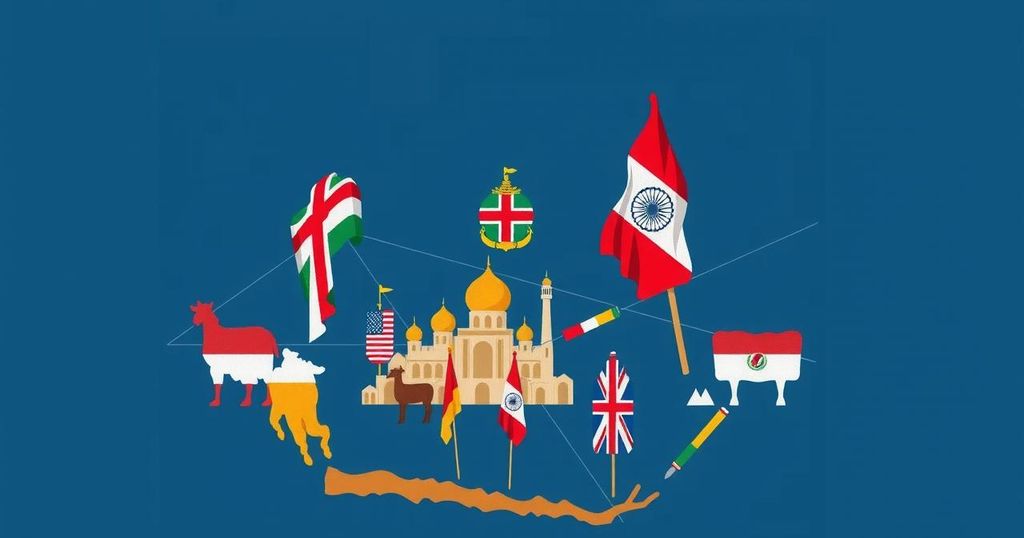Indonesia Partners with BRICS Amidst Shifting Global Dynamics

Indonesia has officially joined BRICS as a partner country, enhancing its global economic ties. The announcement was made during Foreign Minister Retno Marsudi’s first trip overseas. At a summit in Kazan, discussions focused on a multipolar world and reducing reliance on the U.S. dollar. While 13 countries were granted partner status, they do not possess full voting rights or membership privileges.
On Thursday, Indonesia achieved a significant diplomatic milestone by officially becoming a partner country of BRICS, joining a strategic coalition aimed at challenging the prevailing Western-centric global order. This development aligns with Indonesia’s ongoing interest in enhancing its international economic cooperation, particularly with the BRICS group, which comprises Brazil, Russia, India, China, and South Africa. The announcement coincided with Foreign Minister Retno Marsudi’s inaugural overseas trip following her recent appointment, underscoring the Indonesian government’s commitment to expanding its global engagement. During a three-day summit in Kazan, Russia, leaders from BRICS convened with numerous foreign dignitaries to advocate for a multipolar world order in light of their increasing discontent with Western institutions. The discussions, which were chaired by Russian President Vladimir Putin—whose regime has experienced heightened tensions with Western nations since the invasion of Ukraine in 2022—focused on minimizing reliance on the United States dollar and enhancing the inclusivity and representation of global governance structures. Furthermore, according to reports from TASS, a total of 13 nations, including Indonesia, Malaysia, Thailand, Vietnam, Turkey, and Cuba, were granted partnership status within BRICS. However, Russian officials clarified that this status does not equate to full membership; partner nations lack voting rights and full participatory privileges in BRICS meetings and summits. Continued dialogues regarding these countries’ potential transition to full membership are anticipated, as indicated by Kremlin representatives.
The BRICS coalition, which initially included Brazil, Russia, India, China, and South Africa, has increasingly sought to challenge the unipolar influence of Western nations on global affairs. Indonesia’s entry as a partner is viewed as part of a broader strategy to enhance economic ties with emerging markets and diversify its international relationships.
In conclusion, Indonesia’s designation as a BRICS partner marks a strategic move to join a growing coalition of nations seeking to reshape the global economic landscape. This partnership is anticipated to provide Jakarta with enhanced opportunities for international collaboration, particularly as the BRICS bloc strives to establish a multipolar framework that diverges from traditional Western dominance. While Indonesia’s status as a partner offers significant diplomatic advantages, it remains to be seen how this may evolve into full membership in the future.
Original Source: www.thejakartapost.com








